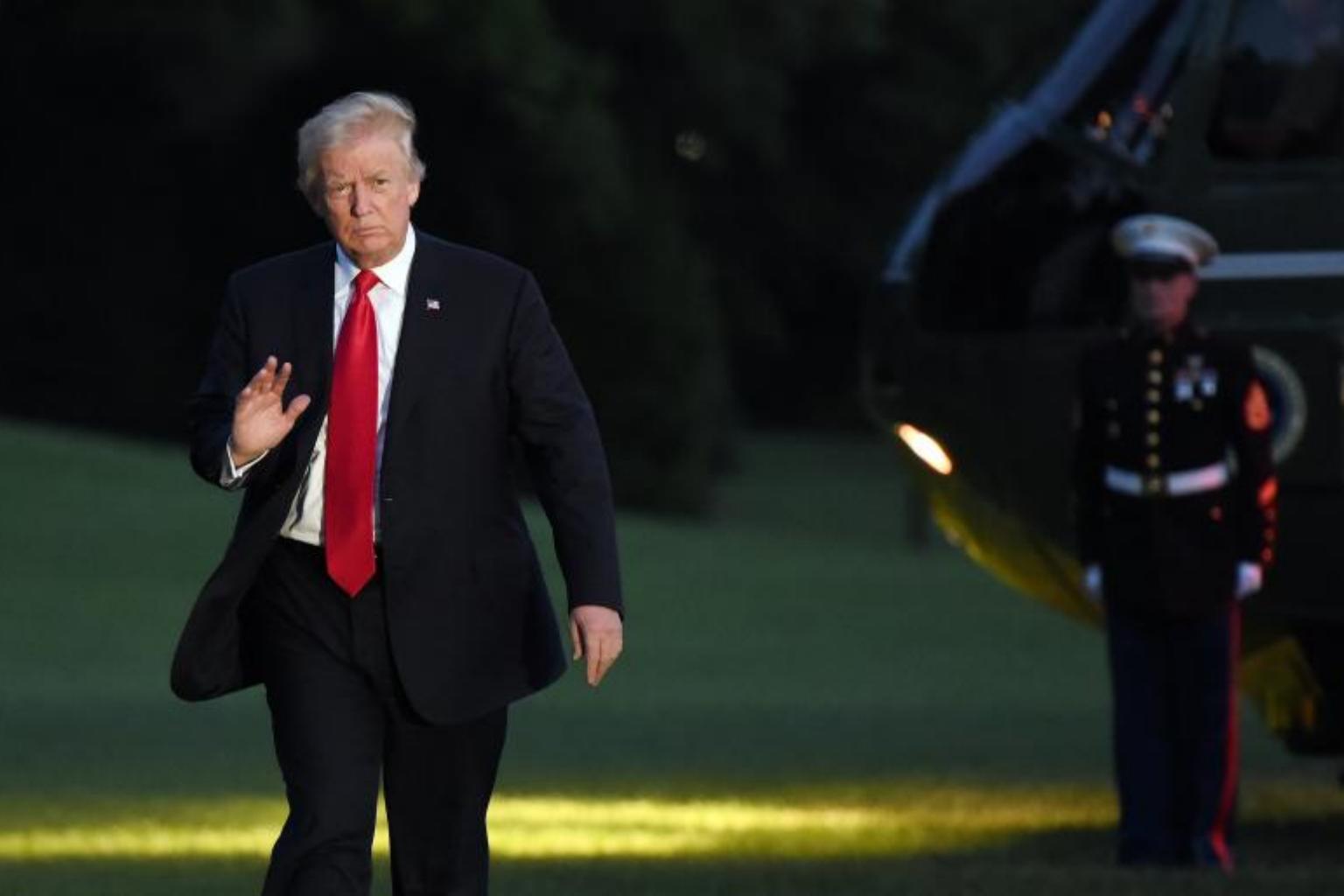US isolationism will affect its standing on North Korea: The Yomiuri Shimbun
Sign up now: Get insights on Asia's fast-moving developments

US President Donald Trump waves as he returns to the White House in Washington, DC, USA, on July 8, 2017.
PHOTO: EPA
In its editorial on 10 July, the paper warns that Trump's "America First" policy is damaging its international standing, and may compromise efforts over North Korea.
TOKYO (THE YOMIURI SHIMBUN/ASIA NEWS NETWORK) - With North Korea's launch of an intercontinental ballistic missile, it has become more necessary for the international community to strengthen pressure on the country. If China and Russia continue to resist additional sanctions against Pyongyang, it will further aggravate the situation.
At a summit of the Group of 20 major and emerging economies in Germany, U.S. President Donald Trump held separate meetings with Chinese President Xi Jinping and Russian President Vladimir Putin.
Xi emphasised "efforts to promote talks" with North Korea and did not change his passive attitude regarding pressure that could lead to a destabilisation of the regime of North Korean leader Kim Jong Un.
Concerning a solution of the North Korea issue, Trump said, "It may take longer than I'd like, it may take longer than you'd like." Trump seems to think that it will take a certain amount of time to persuade China to take strict measures against North Korea, such as restricting the crude oil supply from China to Pyongyang.
Trump showed a U.S. position of not overlooking its trade deficit with China, by clearly stating that the trade imbalance is a "very, very big issue" for the United States. The United States undoubtedly will pressure China on this issue, in addition to its current financial sanctions against a Chinese bank and sale of arms to Taiwan.
An intimate relationship that was staged in a U.S.-China bilateral meeting in April this year is at a turning point. Hasn't the United States revealed both an inaccurate understanding of China that the United States had in the early stages and inconsistency in foreign policies by the Trump administration?
It was the first bilateral meeting between the United States and Russia since the inauguration of the Trump administration. They agreed on cooperating for a partial ceasefire in the Syrian civil war and began to make efforts to repair their conflict.
Regarding the scandal around Russia's involvement in the 2016 U.S. presidential election, Putin denied the allegations, and there was no progress on the issue. As to how to deal with the North Korea issue, it is said that both leaders differed in their opinions and failed to reach an agreement.
In their foreign ministers' joint statement, China and Russia insisted that North Korea's "justified concerns should be respected" and proposed freezing, at the same time, North Korea's nuclear and missile development programmes and joint military exercises by the United States and South Korea. Taking into account how Pyongyang has scrapped various agreements, the proposal by China and Russia is difficult to accept.
What is worrisome is that U.S. isolation was prominent at the G-20 summit. With the U.S. announcement to withdraw from the Paris Agreement for measures against global warming in mind, the G-20 leaders' declaration came out with a policy to promote the climate accord within the remaining 19 countries and regions.
The declaration specified that "we will continue to fight protectionism" in trade issues, while including wording that "we recognise the role of legitimate trade defence instruments" to counter unfair trade practices in consideration of the United States.
It is clear that Trump's "America first" foreign policy has created a crack in the G-20 unity.
Trump must be aware that if the United States' international isolation becomes deeper, it could have a smaller voice and its influence on the North Korea issue may be restricted.
The Yomiuri Shimbun is a member of The Straits Times media partner Asia News Network, an alliance of 22 news media entities.


